Massachusetts boasts a diverse array of ports, from bustling commercial hubs like Boston Harbor to picturesque harbors such as Nantucket and Martha’s Vineyard.
These ports serve as vital gateways for international trade, accommodating container shipping, bulk cargo, and passenger ferries.
They also support vivid fishing industries, recreational boating activities, and historic landmarks that showcase the state’s seafaring heritage.
Whether bustling with activity in urban centers or offering tranquil escapes along scenic coastlines, Massachusetts’ ports are dynamic hubs of commerce, tourism, and maritime culture, embodying the spirit of innovation and tradition that define the Bay State’s coastal communities.
A List of 15 Ports in Massachusetts
Massachusetts boasts a rich maritime history, and its ports have played a significant role in its economic development and cultural heritage.
Here are 15 notable ports in Massachusetts:
1. Boston Harbor
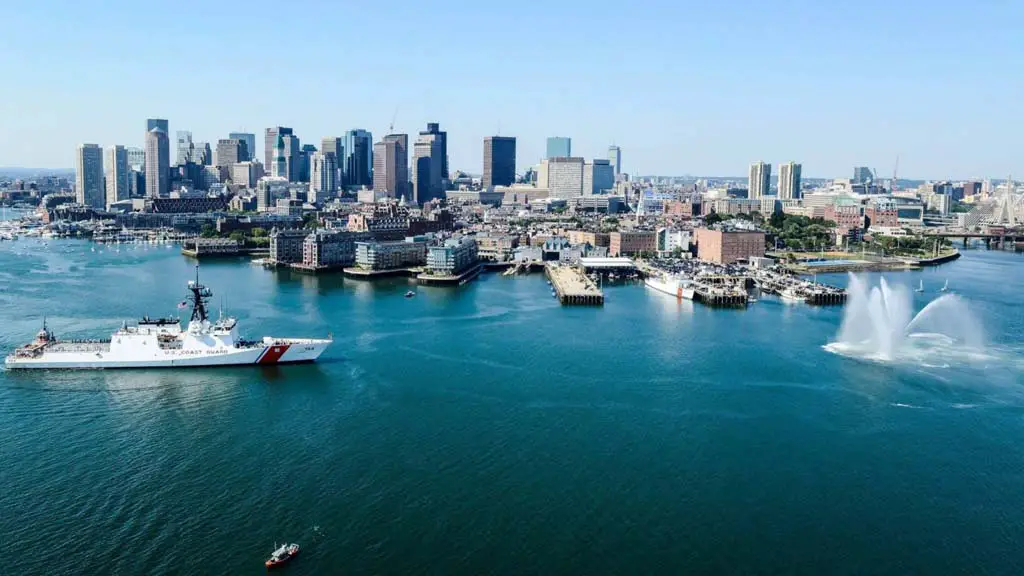
Boston Harbor’s significance extends far beyond its role as a bustling commercial port. It is steeped in history, serving as the site of the Boston Tea Party and playing a crucial role in the American Revolution.
Today, it remains a vital hub for international trade, handling a diverse range of cargo, including containerized goods, petroleum products, and raw materials.
The port’s terminals cater to various industries, from manufacturing to retail, facilitating seamless transportation of goods to and from the Greater Boston area.
2. Port of New Bedford
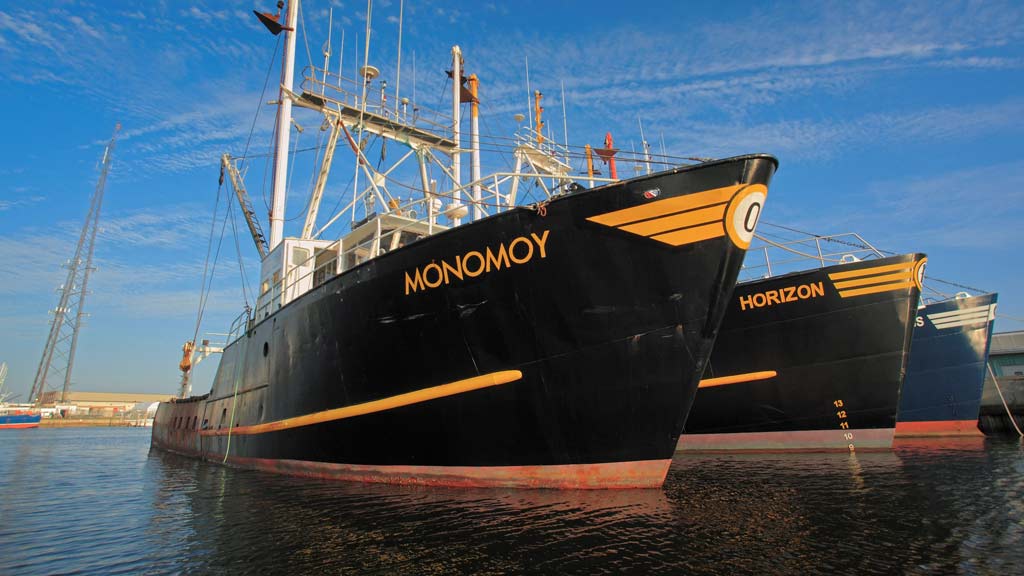
New Bedford’s maritime legacy is deeply rooted in its whaling industry, which thrived in the 19th century and inspired Herman Melville’s classic novel, “Moby-Dick.”
While whaling has long since declined, New Bedford has emerged as a powerhouse in the fishing industry, particularly known for its scallop catch, which accounts for a significant portion of the nation’s supply.
The port’s strategic location and deep-water harbor also make it an ideal base for offshore wind energy projects, further diversifying its economic activities.
3. Port of Gloucester
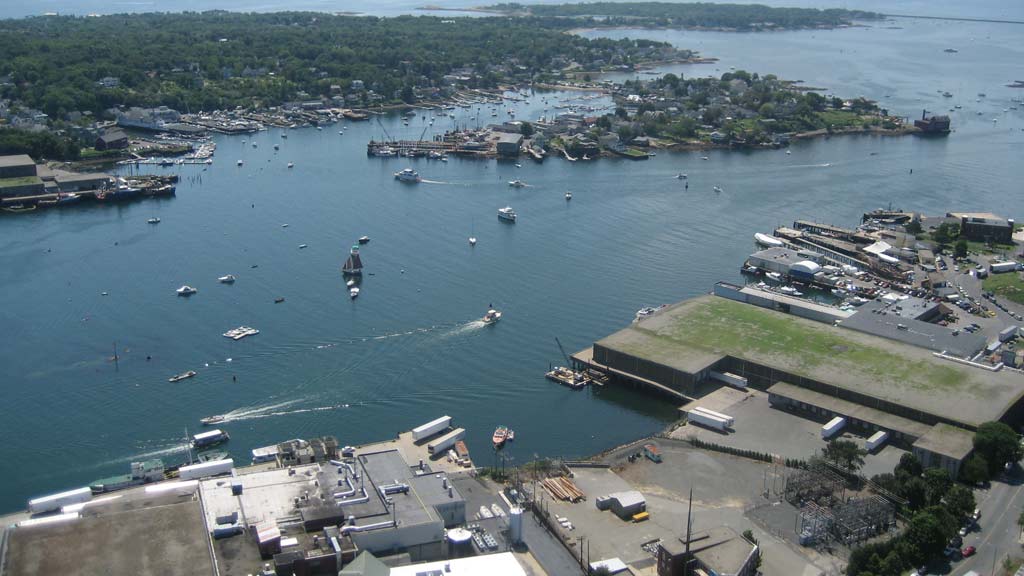
Gloucester’s maritime heritage is synonymous with the rugged seafaring culture depicted in films like “The Perfect Storm.”
As one of the oldest fishing ports in the United States, Gloucester continues to be a vital center for commercial fishing, specializing in species like cod, haddock, and tuna.
The port’s fishermen brave the unpredictable waters of the North Atlantic, sustaining a tradition that has defined the region for centuries.
In addition to its commercial fishing fleet, Gloucester Harbor accommodates recreational boaters, offering access to scenic coastal waters and nearby islands.
4. Port of Fall River
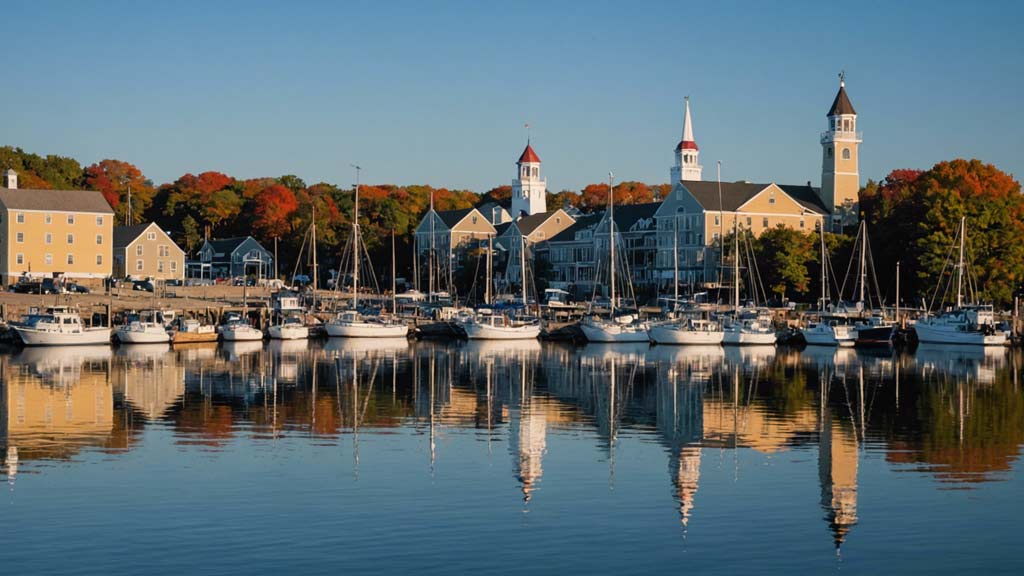
Fall River’s port has evolved from its industrial roots to become a multifaceted transportation hub serving southeastern Massachusetts.
While it still handles cargo shipping, including bulk commodities like petroleum and gravel, the port has diversified its operations to include passenger ferry services, connecting travelers to destinations like Martha’s Vineyard and Block Island.
Recreational boating is also popular in Fall River Harbor, with facilities for sailing, kayaking, and fishing available to residents and visitors alike.
5. Port of Salem
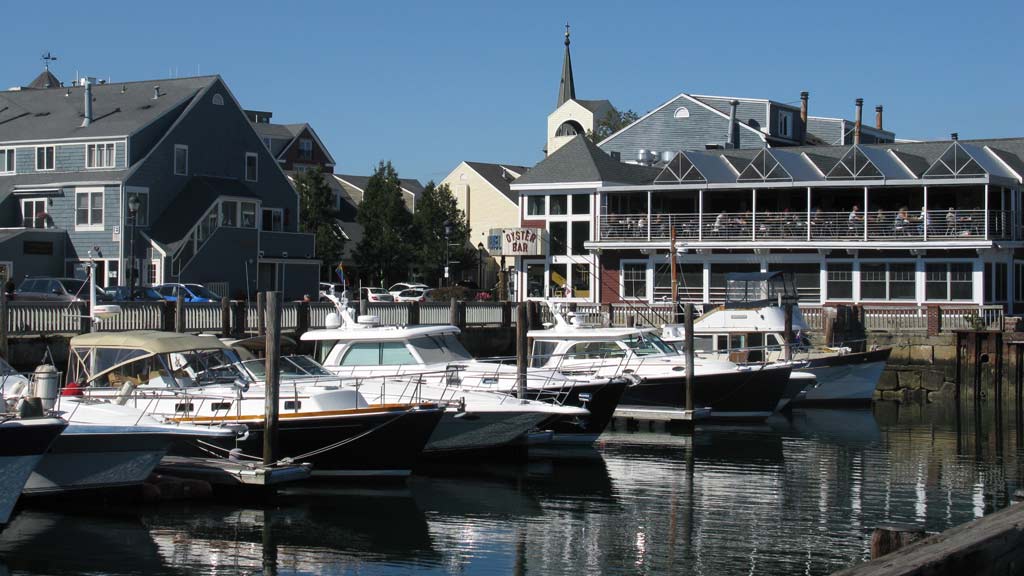
Salem’s waterfront is a living testament to its storied past as a maritime powerhouse during the colonial era.
The port played a pivotal role in the global trade network, with ships laden with goods from distant lands docking at its wharves.
While its commercial significance has diminished over time, Salem Harbor remains a vivid maritime community, with marinas, yacht clubs, and waterfront parks preserving its rich heritage.
Visitors can explore historic sites like the Salem Maritime National Historic Site, which showcases the city’s seafaring legacy through exhibits and guided tours.
6. Port of Plymouth
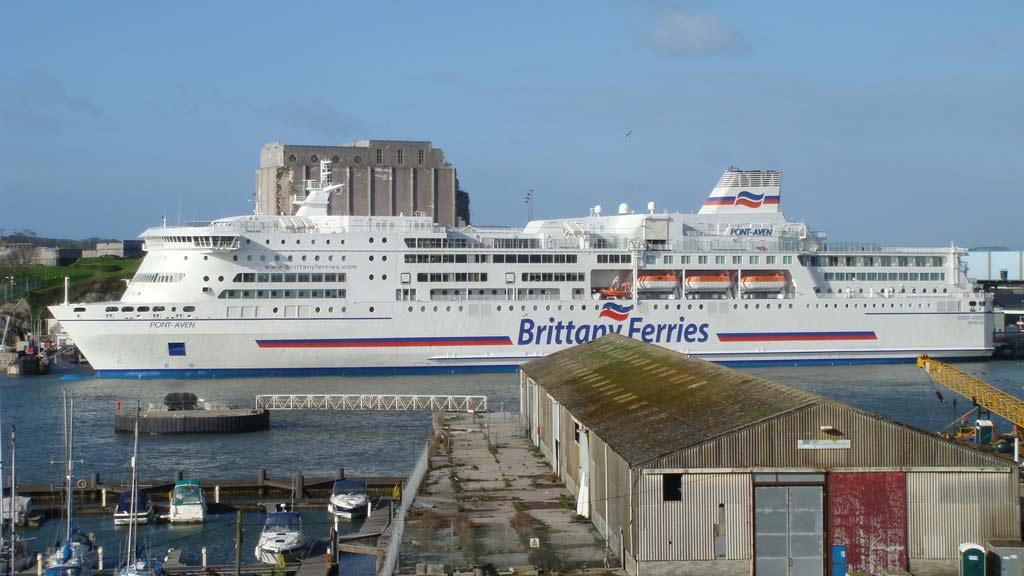
Plymouth Harbor holds a special place in American history as the iconic landing site of the Mayflower in 1620, marking the beginning of the Pilgrims’ settlement in the New World.
Today, the port serves as a gateway to the past, with numerous historical sites and monuments commemorating this seminal event, including Plymouth Rock and the Pilgrim Memorial State Park.
In addition to its historical significance, Plymouth Harbor attracts recreational boaters, offering marinas, docks, and services for those exploring the scenic waters of Cape Cod Bay.
7. Port of Provincetown
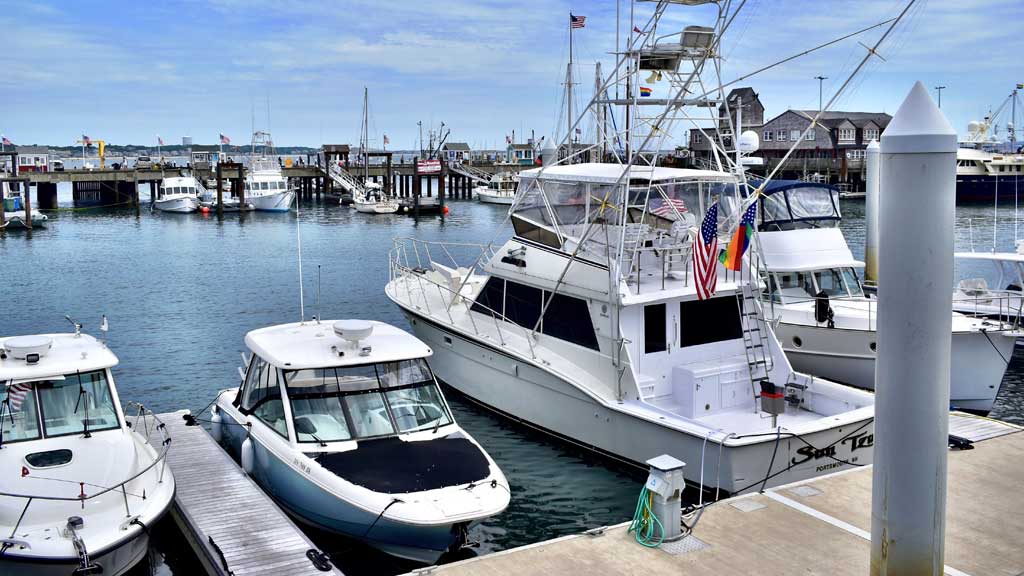
Provincetown Harbor, located at the northern tip of Cape Cod, is a dynamic port with a rich cultural heritage and thriving arts community.
Renowned for its picturesque beaches, eclectic shops, and vivid nightlife, Provincetown has long been a haven for artists, writers, and performers.
The harbor supports a diverse array of activities, including commercial fishing operations that supply fresh seafood to local restaurants and markets.
Ferries connect Provincetown to Boston and other destinations, providing residents and visitors with convenient transportation options.
8. Port of Barnstable
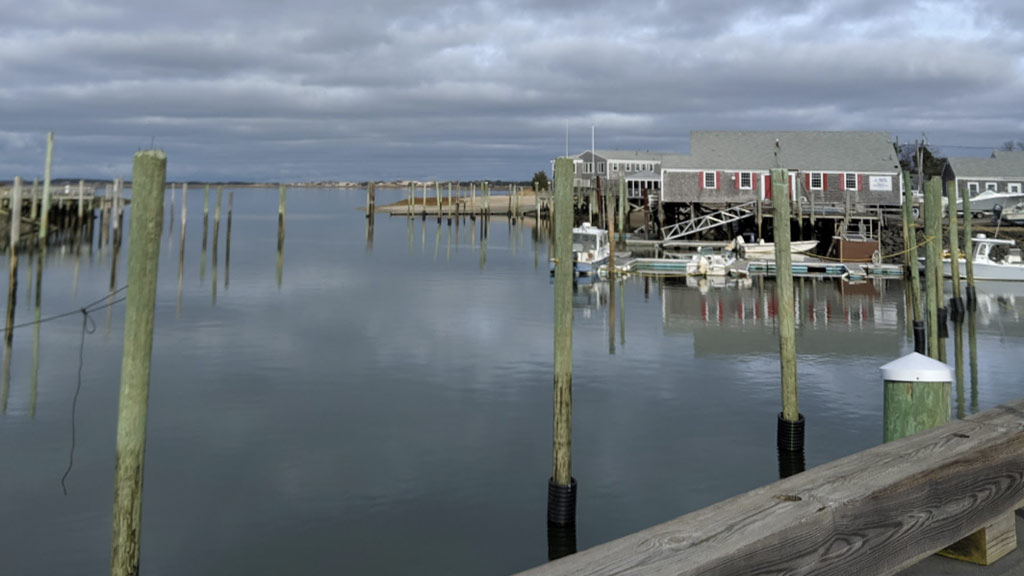
Barnstable Harbor serves as a vital transportation hub for Cape Cod and the nearby islands of Nantucket and Martha’s Vineyard.
Commercial fishing remains an important industry in the harbor, with local fishermen harvesting a variety of seafood, including lobsters, clams, and oysters.
Passenger ferries provide regular service to Nantucket and Martha’s Vineyard, allowing travelers to explore these idyllic island destinations without the need for a car.
Recreational boating is also popular in Barnstable Harbor, with marinas and boat ramps providing access to the region’s pristine waterways.
9. Port of Woods Hole
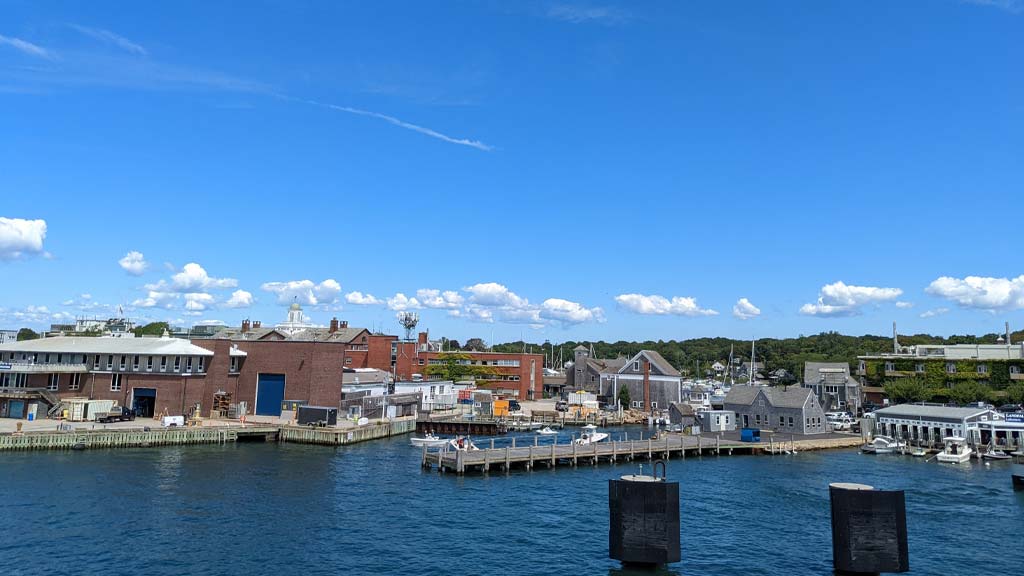
Woods Hole Harbor, situated in the town of Falmouth, is renowned for its world-class marine research institutions, including the Woods Hole Oceanographic Institution and the Marine Biological Laboratory.
These esteemed organizations conduct groundbreaking scientific research and education initiatives, attracting top scholars and students from around the globe.
In addition to its academic pursuits, Woods Hole Harbor offers ferry services to Martha’s Vineyard, making it a popular departure point for travelers seeking to explore the island’s pristine beaches and quaint villages.
10. Port of Hyannis
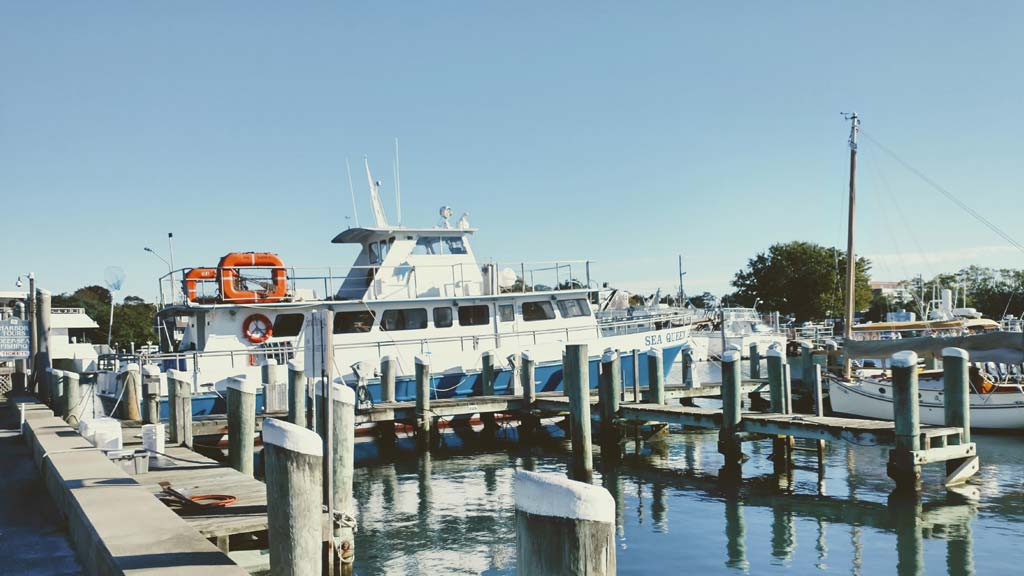
Hyannis Harbor, located on Cape Cod, is a bustling port and popular tourist destination renowned for its scenic beauty and maritime charm.
Serving as the primary transportation hub for the nearby islands of Nantucket and Martha’s Vineyard, Hyannis Harbor offers regular ferry service to these idyllic destinations, providing travelers with convenient access to their pristine beaches and charming towns.
In addition to its role as a transportation center, Hyannis Harbor boasts a vivid waterfront scene, with a bustling marina, waterfront restaurants, and shops selling everything from nautical souvenirs to fresh seafood.
Recreational boating is also popular in the harbor, with opportunities for sailing, fishing, and sightseeing abound.
11. Port of Nantucket
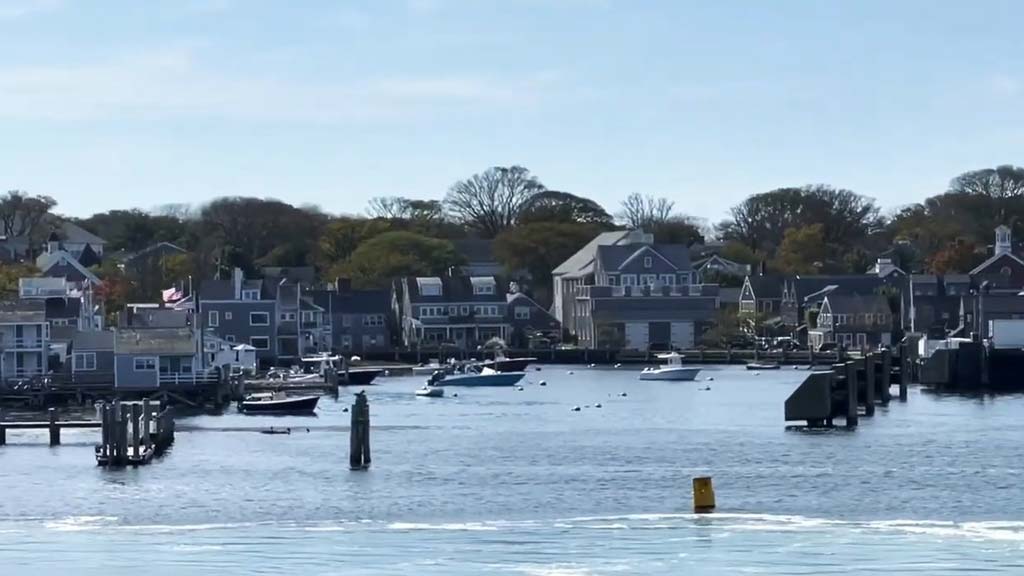
Nantucket Harbor, surrounded by the quaint island town of Nantucket, is a picturesque maritime community offering ferry services, recreational boating, and a rich seafaring heritage.
Serving as the island’s primary gateway, it welcomes visitors with its historic wharves and scenic waterfront.
Ferry connections provide convenient access to the mainland, while marinas cater to recreational boaters exploring the island’s coastline.
Historic sites like the whaling museum and cobblestone streets preserve Nantucket’s maritime history, inviting visitors to immerse themselves in the charm of this coastal destination.
12. Port of Martha’s Vineyard
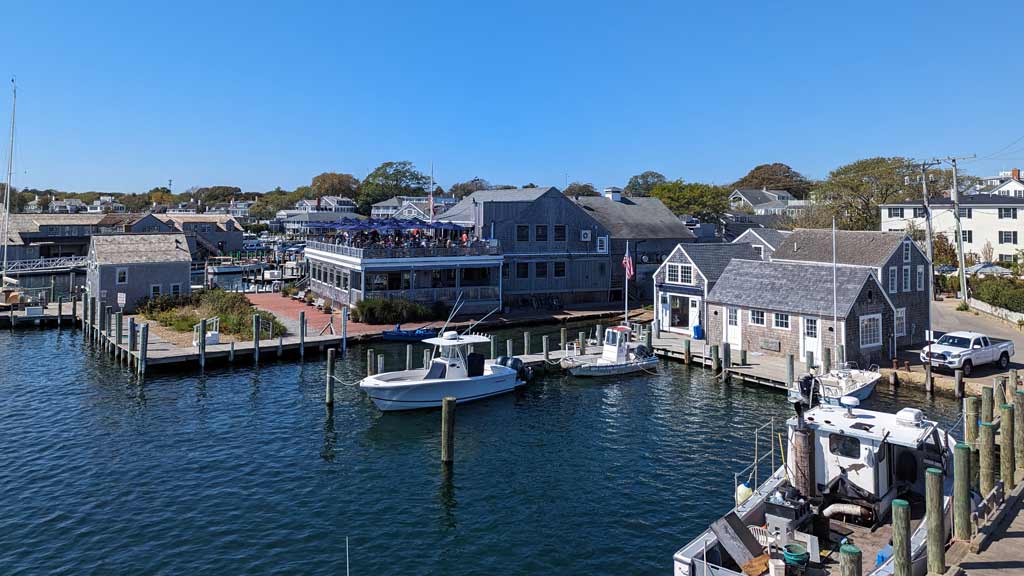
Martha’s Vineyard boasts two main harbors Vineyard Haven and Oak Bluffs each offering ferry access, marinas, and waterfront amenities.
Vineyard Haven Harbor welcomes ferry passengers and recreational boaters, while Oak Bluffs Harbor charms visitors with its gingerbread cottages and historic carousel.
Both harbors embody the island’s relaxed atmosphere and maritime heritage, providing gateways to Martha’s Vineyard’s scenic beauty and cultural attractions.
13. Port of Edgartown
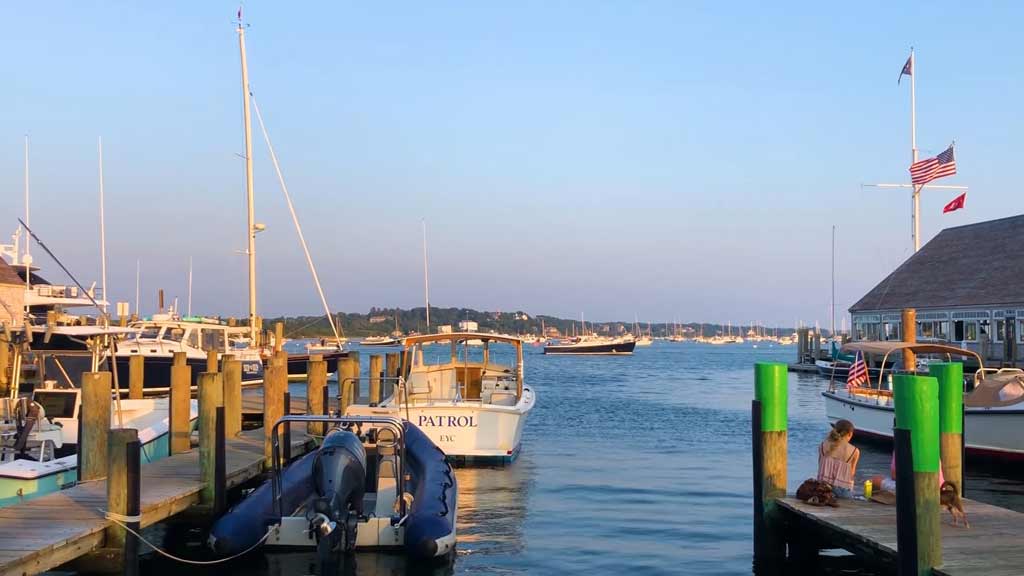
Edgartown Harbor on Martha’s Vineyard is a picturesque port known for its elegant waterfront homes, historic lighthouse, and world-class boating facilities.
Boasting ample moorings and amenities for vessels of all sizes, it attracts sailors and yachting enthusiasts seeking sheltered waters and scenic views.
Visitors can explore the town’s charming downtown area, dotted with quaint shops and restaurants serving fresh seafood.
Historic landmarks like the Edgartown Lighthouse and Captain’s Row offer glimpses into the town’s maritime past and colonial heritage.
14. Port of Quincy
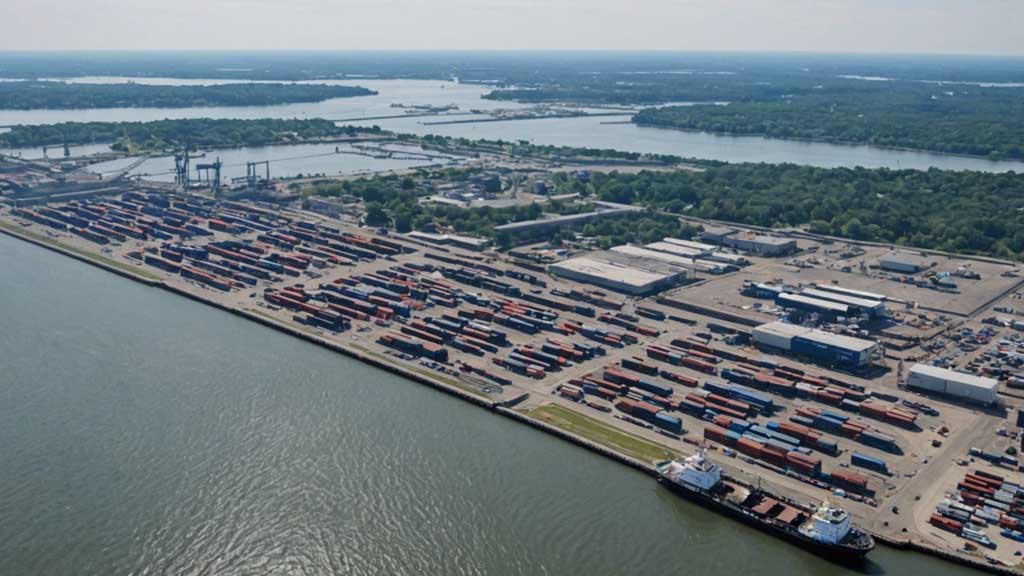
Quincy’s port, nestled along the South Shore of Massachusetts, serves as a vital industrial hub for shipping and maritime commerce.
Handling containerized cargo, bulk materials, and goods, it facilitates trade and transportation to domestic and international markets.
The port’s strategic location provides easy access to transportation arteries, ensuring efficient movement of goods via highways and railroads.
Quincy’s waterfront parks and recreational facilities offer opportunities for boating, fishing, and outdoor recreation, complementing its maritime activities.
15. Port of Everett
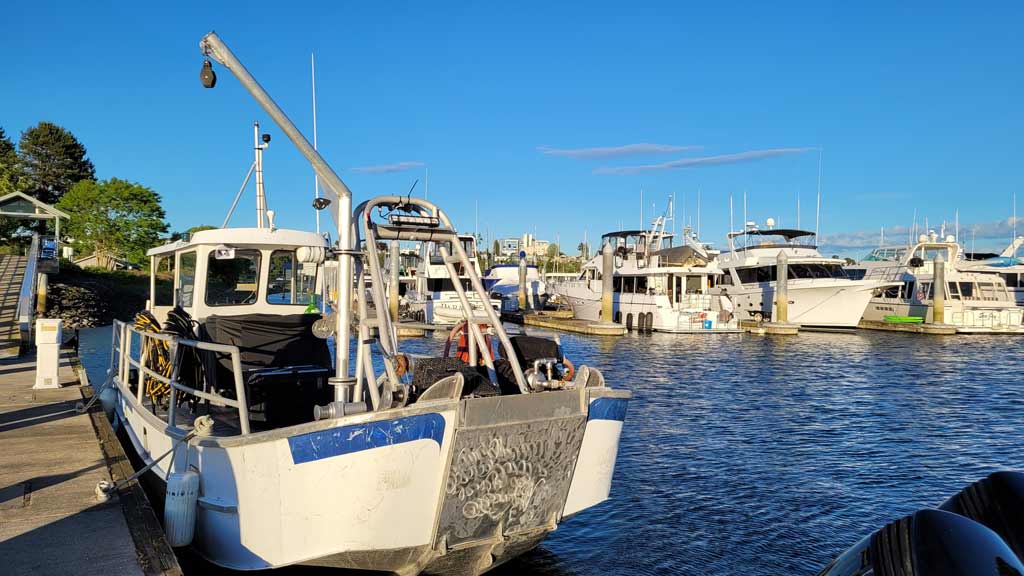
Everett’s port, situated on the Mystic River, is a dynamic transportation hub supporting container shipping, bulk cargo, and industrial activities.
While technically located in Massachusetts, it primarily serves the Greater Boston area, contributing to the region’s economy and maritime infrastructure.
With deep-water berths and modern facilities, it accommodates large vessels and maritime industries, including shipbuilding and marine construction.
Everett’s waterfront parks and public spaces offer opportunities for recreation and leisure, highlighting the port’s role in connecting communities and fostering economic growth.
FAQs
What are the major ports in Massachusetts?
Massachusetts is home to several major ports, including Boston Harbor, New Bedford, Gloucester, and Fall River.
These ports play vital roles in commerce, fishing, tourism, and transportation throughout the state and beyond.
What types of cargo are handled at Massachusetts ports?
Massachusetts ports handle a diverse range of cargo, including containerized goods, petroleum products, raw materials, and seafood.
How do Massachusetts ports contribute to the state’s economy?
Massachusetts ports contribute significantly to the state’s economy by facilitating international trade, supporting commercial fishing operations, and attracting tourism.
What recreational activities are available at Massachusetts ports?
Massachusetts ports offer various recreational activities, including sailing, boating, fishing charters, sightseeing tours, and waterfront dining.
Are there historical attractions at Massachusetts ports?
Yes, several Massachusetts ports boast historical attractions that highlight the state’s maritime heritage.
Wrap Up
The ports of Massachusetts epitomize the state’s maritime legacy, spanning centuries of history, commerce, and culture.
Each, from Boston Harbor to Nantucket and Martha’s Vineyard, adds distinctiveness to the region’s economic and cultural tapestry.
Serving as vital conduits for global trade, they fuel economic development and tourism. Moreover, they offer gateways to explore scenic coastal landscapes and engage in recreational activities.
These ports, blending innovation with tradition, evolve to meet contemporary needs while honoring their rich heritage.
With their strategic positioning, modern amenities, and historical allure, Massachusetts’ ports remain indispensable, unifying communities and fostering prosperity along the dynamic coastline.
Naim Benmayor